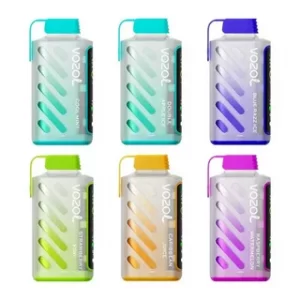Innovation in Energy Storage: Hydrogen Fuel Cell vs Lithium-Ion Battery Showdown

Introduction
The quest for efficient, sustainable, and powerful energy storage solutions has led to significant advancements in two key technologies: Hydrogen Fuel Cells and Lithium-Ion Batteries. Each of these technologies offers unique advantages and challenges, making them suitable for different applications. This post provides a comparative analysis of these two energy storage systems, exploring their working principles, advantages, disadvantages, and potential applications.
Understanding Hydrogen Fuel Cells
Working Principle
Hydrogen fuel cells generate electricity through a chemical reaction between hydrogen and oxygen. The main components are an anode, cathode, and an electrolyte membrane. Hydrogen gas is fed into the anode, where it splits into protons and electrons. The protons pass through the electrolyte to the cathode, while the electrons create an electric current as they move through an external circuit to the cathode. The electrons and protons combine with oxygen at the cathode to produce water, the only emission.
Advantages
- Zero Emissions: Only water vapor is emitted, making them environmentally friendly.
- High Energy Density: They can store more energy per unit weight than batteries, ideal for heavy-duty applications.
- Fast Refueling: Hydrogen fuel cells can be refueled quickly, similar to traditional gasoline vehicles.
Disadvantages
- Hydrogen Storage and Infrastructure: Storing hydrogen battery vs lithium-ion is challenging due to its low density. The lack of a widespread hydrogen refueling infrastructure is also a significant hurdle.
- Cost: High cost of fuel cell production, largely due to the use of expensive catalysts like platinum.
Understanding Lithium-Ion Batteries
Working Principle
Lithium-ion batteries store energy in chemical form and release it as electricity. They consist of an anode, cathode, separator, and electrolyte. During discharge, lithium ions move from the anode to the cathode through the electrolyte, creating an electrical flow. The process reverses during charging.
Advantages
- High Efficiency: Lithium-ion batteries are highly efficient with a quick response time.
- Energy Density: They have a high energy density, providing a long duration of power.
- Scalability and Flexibility: Easily scalable and can be used in a wide range of applications, from small electronics to electric vehicles.
Disadvantages
- Limited Lifespan: They degrade over time and with use, leading to reduced capacity.
- Charging Time: Longer charging times compared to hydrogen fueling.
- Environmental Concerns: The production and disposal of lithium-ion batteries raise environmental concerns, including the mining of lithium and other metals.
Applications and Future Outlook
Hydrogen Fuel Cells
- Ideal for heavy-duty and long-range applications like buses, trucks, and potentially airplanes.
- Research focuses on reducing costs and developing a robust hydrogen infrastructure.
Lithium-Ion Batteries
- Dominant in consumer electronics and electric vehicles.
- Advances are being made in increasing lifespan, capacity, and reducing charging times.
Conclusion
Both hydrogen fuel cells and lithium-ion batteries are at the forefront of energy storage innovation, each with its distinct set of strengths and weaknesses. The choice between them depends on the specific requirements of the application, such as energy density, refueling or charging time, and environmental impact. As technology advances, we can expect both systems to play critical roles in different sectors, driving us towards a more sustainable energy future.




